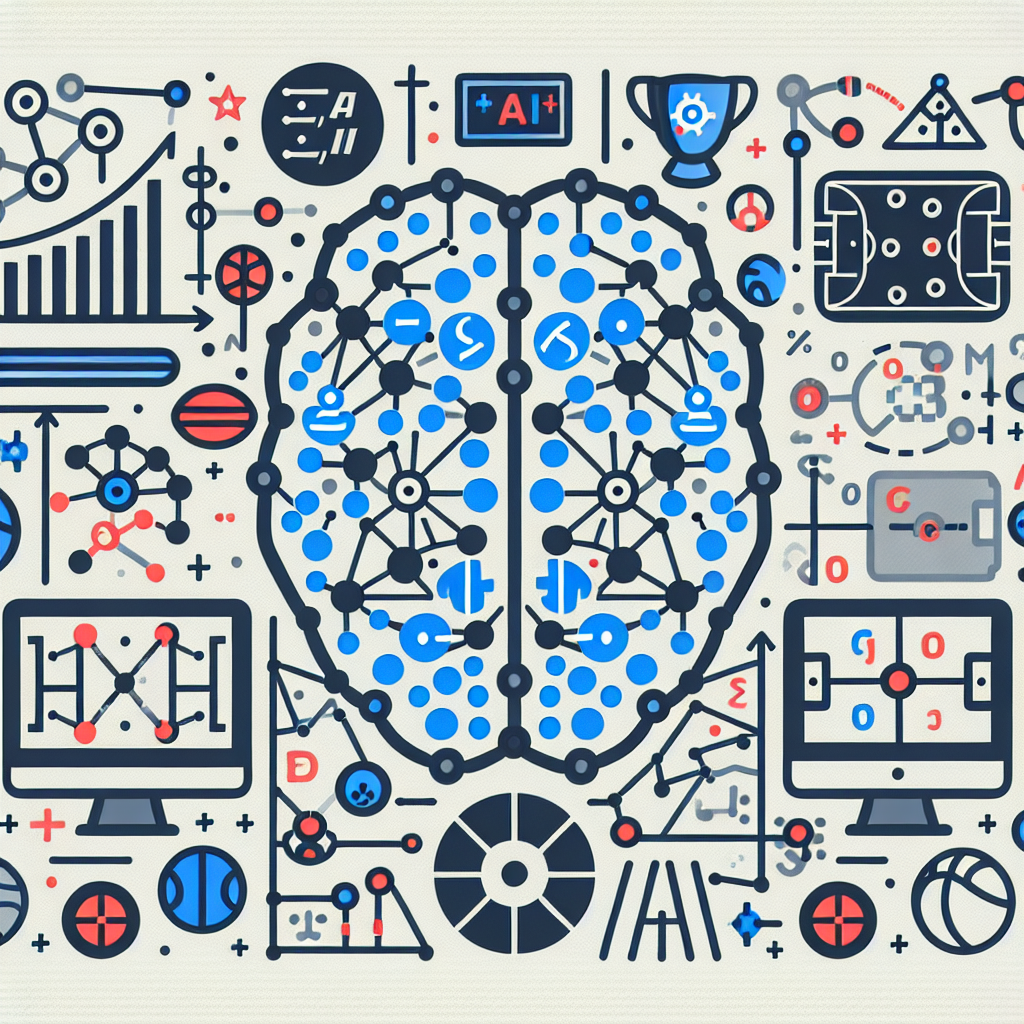AI platforms are revolutionizing sports analytics by providing teams with advanced tools and insights to gain a competitive edge. These platforms use machine learning algorithms to analyze vast amounts of data, helping coaches and players make more informed decisions and improve their performance on the field. In this article, we will explore how AI platforms are transforming the world of sports analytics and the benefits they bring to teams.
One of the key ways in which AI platforms are revolutionizing sports analytics is through their ability to analyze player performance in real-time. By tracking player movements, speed, and other metrics, these platforms can provide coaches with valuable insights on how to optimize their strategies and improve their team’s performance. For example, AI platforms can analyze player positioning during a game and suggest adjustments to improve offensive or defensive plays.
AI platforms can also analyze game footage to identify patterns and trends that may not be immediately apparent to human observers. By analyzing thousands of hours of video footage, these platforms can help coaches identify weaknesses in their opponent’s strategies and develop more effective game plans. This can give teams a significant advantage on the field, as they can better anticipate their opponent’s movements and adjust their tactics accordingly.
In addition to analyzing player performance and game footage, AI platforms can also help teams make better decisions in player recruitment and development. By analyzing player data from various sources, such as scouting reports, performance metrics, and injury histories, these platforms can help teams identify talented players who may have been overlooked by traditional scouting methods. This can help teams build stronger rosters and improve their chances of success on the field.
Furthermore, AI platforms can help teams optimize their training programs to maximize player performance and reduce the risk of injuries. By analyzing player biometric data, such as heart rate, sleep patterns, and muscle fatigue, these platforms can help coaches tailor training programs to each player’s individual needs. This can help teams reduce the risk of injuries and improve player performance over the long term.
Overall, AI platforms are revolutionizing sports analytics by providing teams with advanced tools and insights to gain a competitive edge. By analyzing player performance, game footage, and player data, these platforms can help teams make better decisions in all aspects of their operations, from game strategies to player recruitment and development. As the use of AI platforms in sports analytics continues to grow, we can expect to see even more innovative applications that will further enhance the way teams compete on the field.
FAQs:
Q: How do AI platforms analyze player performance?
A: AI platforms analyze player performance by tracking various metrics, such as player movements, speed, and biometric data. This data is then analyzed using machine learning algorithms to provide coaches with insights on how to optimize their strategies and improve their team’s performance.
Q: How can AI platforms help teams make better decisions in player recruitment?
A: AI platforms can help teams make better decisions in player recruitment by analyzing player data from various sources, such as scouting reports, performance metrics, and injury histories. This can help teams identify talented players who may have been overlooked by traditional scouting methods and build stronger rosters.
Q: How do AI platforms help teams optimize their training programs?
A: AI platforms help teams optimize their training programs by analyzing player biometric data, such as heart rate, sleep patterns, and muscle fatigue. This data is used to tailor training programs to each player’s individual needs, reducing the risk of injuries and improving player performance over the long term.

